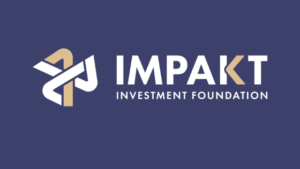His excellency Swiss Ambassador Heinrich Maurer met yesterday /26th November, with minister of foreign trade and economic relations Boris Tucic. The topic of the meeting was EFTA Agreement which will be in force since 1 January 2015, and will enable placement of fruit and vegetable at the markets of this economic group – Swiss Confederation, Kingdom of Norway, Island and Principality of Liechtenstein. The statistics show, that BiH trades mostly with Switzerland, out of the four EFTA countries, and Norway. Last year, BiH exported to Switzerland products of 135.318.071 KM value, to Norway 13.526.210 KM, while imported goods were of 3.470.186 KM value. Switzerland is interesting as almost 40% of the population needs for food is imported, giving potential opportunity for placement of BiH agricultural products at this market. That is the reason why in February 2015, Ministry of Foreign Trade and Economic Relations will organise a seminar for trade promotion in cooperation with EFTA Secretariat, and the business community will be able to learn about export opportunities to EFTA countries.
The meeting served to discuss with ambassador Maurer the seminar which will be held in order to promote EFTA Agreement in Sarajevo 16/17 February 2015 and in Banja Luka 19 February 2015. Minister Tucic and ambassador Maurer discussed about new avio lines between Geneve and Sarajevo, which will be launched in March 2015, and Zurich-Sarajevo, and Zurich-Banja Luka which will be launched in May 2015.
What is EFTA
The European Free Trade Association (EFTA) is a free trade organisation between four European countries Switzerland, Norwey, Island, and Lihenstain. Besides free trade agreement Norwey, Island, and Lihenstain are members of European Economic Area (EEA) with EU, which has been signed on 1994.
Switzerland is not formally a part of EEA Agreement, but has bilateral agreement with EU which essentially harmonizes the legal systems. EFTA countries have agreed with third world countries to create one of the greatest global free trade networks that cover about 80 % of foreign trade in the world. If considering the region, Bosnia and Herzegovina is the last country to conclude this agreement with EFTA.
Negotiations to conclude free trade agreement between Bosnia and EFTA have started once the Presidency BiH endorsed the decision in late March 2011. After more than 2 years of complex and heavy discussions, they have been finalised in early May 2013, as stated by the Ministry of Foreign Trade and Economic Relations BiH.
Businessmen alike – we support the EFTA Agreement
Businessmen in BiH believe that this opportunity is a unique chance for BiH economy and must be used in maximum capacity as this opens the market of 13 million people.
Taking into account that imports from EFTA countries is very modest in the overall imports for BIH, if we take out the gas imports that comes via Switzerland, this agreement will not significantly impact BiH market. On other hand, we expect that EFTA countries markets will be more open and the asymmetry in liberalization will significantly impact BH economy to increase import, as said by Ahmet Egrlic, vice president of Foreign Trade Chambers BIH, adding that we must intensify all activities that will harmonise regulations and standards in agricultural production in line with EU standards, as EFTA have agreed to EEA with EU that envisages same EU legal system.
Mirsad Jasarspahic, vice-president of FBiH Chamber of Commerce, finds that Switzerland and Norway are of the most interest to BH economy, and he believes that metal and machine tool industry are some of the sectors in which BiH needs to establish cooperation with EFTA countries. In order to ensure BH businessmen to reach these markets, and to present EFTA countries potential of BH markets, firstly the business meetings must be organised, Jasarspahic said.





